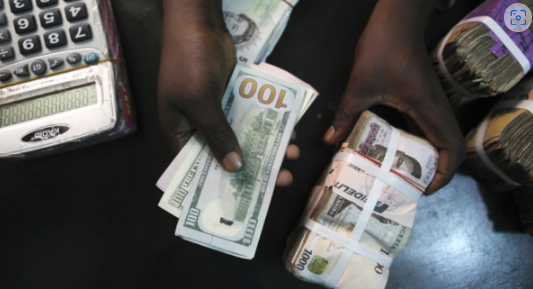The Central Bank of Nigeria (CBN) has said overseas remittances into the country rose to $1.3 billion in February 2024 compared to $300 million in the preceding month.
Mrs. Hakama Sidi Ali, the Bank’s Acting Director of Corporate Communications, disclosed in a press briefing in Abuja.
The CBN also reported a significant rise in foreign inflows in February 2024, driven by higher remittance payments from Nigerians living abroad and a spike in the purchase of naira assets by foreign portfolio investors.
She noted foreign investors purchased over $1 billion of Nigerian assets last month, with the total portfolio flows for the early part of 2024 reaching at least $2.3 billion, compared to the $3.9 billion recorded for the whole year in 2023.
The surge in foreign exchange inflows has continued into March 2024, attributed to the recent adjustments in benchmark interest rates which have heightened investor interest in short-term sovereign debt.
According to the statement, Sidi Ali said:
- “The Bank’s data indicates that overseas remittances rose to US$1.3 billion in February 2024, more than four times the US$300 million received in January.
- “Foreign investors purchased more than US$1 billion of Nigerian assets last month, with total portfolio flows of at least US$2.3 billion recorded thus far in 2024 compared to US$ 3.9 billion seen in total for last year.”
Recommended reading: Nigeria’s FX reserve rose to $34 billion – Cardoso
More Insights
- The scarcity of dollars in the domestic market has significantly contributed to the currency’s weakness. The central bank has been actively addressing this issue by urging Nigerians residing abroad to repatriate their funds through official channels, aiming to stabilise the currency.
- Part of the reforms the CBN has introduced includes clearing the backlog of forex obligations which the CBN noted would be fully cleared in a few days.
- Also, the apex bank has mooted plans to establish a singular foreign currency (FCY) gateway bank that will centralise all correspondent banking activities and provide incentives to individuals who hold foreign currencies outside the formal banking system.
- Other measures include investigating and resolving FX backlogs, restricting forex allocation for overseas education and medical trips, augmenting the minimum share capital for BDCs, and targeting FX market speculators.
- Through these reforms, the CBN is steadfast in its commitment to stabilizing the naira and enhancing the overall health of Nigeria’s foreign exchange market.














